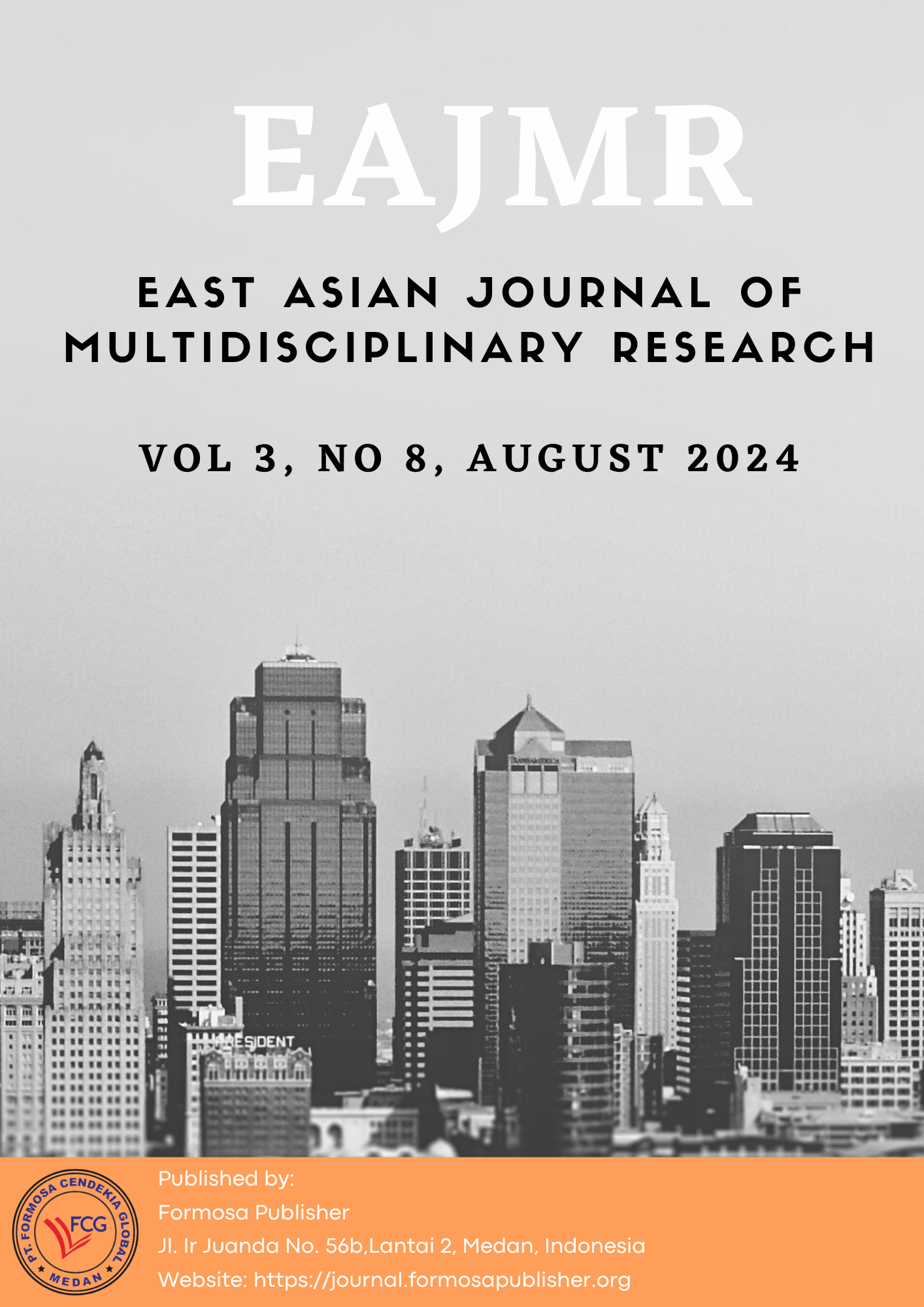Forms of Gender Equality on Female Characters in Singkar Novels
DOI:
https://doi.org/10.55927/eajmr.v3i8.10383Keywords:
Singkar, Woman Character from the Novel, Characterizations, Form of Gender EqualityAbstract
This research aims to analyze the representation of gender equality through the characterization of female characters in the novel Singkar by Siti Aminah. Using a descriptive approach and feminist analysis framework, this research explores the forms of gender equality displayed by female characters and their relationship with the construction of their characters in the novel. The research data in the form of the entire text of the novel Singkar was analyzed through read-and-record techniques and descriptive analysis. Semantic validity and intraretter reliability were used to ensure data validity. The results showed five forms of gender equality expressed by female characters in the novel: 1) autonomy in making decisions, 2) ability to overcome problems, 3) courage to take responsibility, 4) participation in earning a living, and 5) resilience as a single parent. This finding confirms that the characterization of female characters in Singkar is the basis for actions that reflect gender equality.
References
Fadhila, S., et al. (2024). Bedah sastra dengan teori fiksi Robert Stanton. Thalibul Ilmi Publishing & Education.
Fahimah, Siti. (2017). Ekofeminisme: Teori dan gerakan. Alamtara: Jurnal Komunikasi Dan Penyiaran Islam, 1(1), 6-19. https://ejournal.iai-tabah.ac.id/index.php/alamtaraok/article/view/220
Ghuzairoh, T. (2015). Perbedaan forgiveness ditinjau dari jenis kelamin pada Budaya Jawa [Disertasi doktoral, Universitas Islam Negeri Maulana Malik Ibrahim]. http://etheses.uin-malang.ac.id/902/
Mijianti, Y., Saragih, D. K., & Sumarlam, S. (2022). Feminisme wacana sara mills pada novel dewi lestari aroma karsa. Lingua Rima: Jurnal Pendidikan Bahasa Dan Sastra Indonesia, 11(1), 44. https://doi.org/10.31000/lgrm.v11i1.5785
Nasution, W. (2016). Kajian sosiologi sastra novel dua ibu karya arswendo atmowiloto: suatu tinjauan sastra. Jurnal Metamorfosa, 4(1), 14–27. https://ejournal.bbg.ac.id/metamorfosa/article/view/138
Nurgiyantoro, B. (2018). Teori pengkajian fiksi. Gadjah Mada University Press.
Prasetiyo, Ari. (2018). Subordination of Javanese women. Dalam International Seminar on Recent Language, Literature, and Local Cultural Studies (BASA 2018) (hlm. 34-38). Atlantis Press.
Salamah. (2024). Teori sastra. Azka Pustaka.
Sugihastuti, & Suharto. (2015). Kritik sastra feminis: Teori dan aplikasinya. Pustaka Pelajar.
Ulwatunnisa, M. (2023). Refleksi masyarakat Indonesia masa kini melalui cerpen terbitan Kompas. Journal of Literature and Education, 1(2), 75–82. https://doi.org/10.69815/jle.v1i2.15
Utaminingsih, A. (2023). Kajian gender berperspektif patriarki. UB Press.
Wijayanti, I., & Nursalim, I. (2023). Bertahan dalam krisis iklim: Relasi gender perempuan petani stroberi menghadapi dampak perubahan iklim. RESIPROKAL: Jurnal Riset Sosiologi Progresif Aktual, 5(1), 90–102. https://doi.org/10.29303/resiprokal.v5i1.326
Wulandari, S. (2018). Ideologi ‘kanca wingking’: studi relasi kuasa pengetahuan dalam tafsir alhuda. Al-A'raf: Jurnal Pemikiran Islam Dan Filsafat, 15(1), 101. https://doi.org/10.22515/ajpif.v15i1.1210
Yuwono, D. M. (2017). Pengarusutamaan gender dalam pembangunan pertanian: kasus pada pelaksanaan program feati di kabupaten magelang. SEPA: Jurnal Sosial Ekonomi Pertanian Dan Agribisnis, 10(1), 140.
Downloads
Published
How to Cite
Issue
Section
License
Copyright (c) 2024 Jefrianto Jefrianto, Afendy Widayat

This work is licensed under a Creative Commons Attribution 4.0 International License.







.png)





















